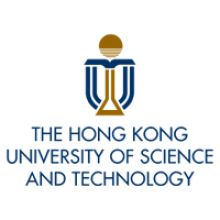A University of Hong Kong student leader has quit his post and has said he has fled the territory in the latest example of the protest movement disrupting campus life.
The acting president of the Hong Kong University Students’ Union, Davin Kenneth Wong, said he had decided to leave after a masked thug attacked him with rattans late last month. He also cited attacks against protest leaders Jimmy Sham Tsz-kit and Max Chung Kin-ping, as well as the arrests of 28 activists including previous HKUSU president Althea Suen.
“I was left with no choice when the lives of my family and I?were on the line in this police state,” Mr Wong said in a widely circulated resignation letter. “The government…decided to silence students and activists instead of [being] accountable to the people.”
Student strikes planned for campuses over the first two weeks of September have had limited impact. Attendance has been well down in some classes but apparently unaffected in others.
Nevertheless, student leaders were not appeased by Hong Kong chief executive Carrie Lam’s withdrawal of the controversial extradition bill on 4?September. The move did not address their calls for Ms Lam’s resignation, an inquiry into police brutality, greater democratic freedoms and the release of arrested protesters.
“There are five demands, and we accept not one less,” student representatives from 11 tertiary institutions proclaimed in a joint statement. “Students’ unions of higher institutions will continue our strike.”
HKUSU has also demanded that the university “cancel all compulsory learning activities” in mainland China after 10 students from HKU, the Hong Kong University of Science and Technology (HKUST) and another local institution were detained for some hours in Tibet in late August.
HKU said it would consider “adjustments” to student exchanges on a case-by-case basis. “Flexibility will be exercised in arranging activities in the mainland when necessary,” a spokeswoman said.
HKUST said it did not have curricular requirements for students to visit the mainland, but it encouraged them to pursue exchange and internship opportunities there. It said it had established a 24-hour helpline for study-abroad students.
The Chinese University of Hong Kong said it had not cancelled or suspended exchange activities to the mainland, but added that it had counselled students “to?make personal safety their primary concern”.
HKUSU said it had received complaints about students being “unreasonably detained” by Chinese customs officials. “During trips to China for compulsory learning activities, they were forced to unlock their mobile devices, which were subsequently subjected to scrutinisation by Chinese authorities,” the institution said.
A student activist visiting Australia reported similar treatment at Melbourne Airport. Zoey Leung Siu-yuk, external vice-president of Hong Kong Baptist University Students’ Union, said immigration officials had asked her to unlock her phone to allow them to examine photos and social media records.
The Australian Border Force dismissed the incident as a routine search. “Travellers from Hong Kong are not being singled out for extraordinary identity and baggage checks,” it said in a statement.
请先注册再继续
为何要注册?
- 注册是免费的,而且十分便捷
- 注册成功后,您每月可免费阅读3篇文章
- 订阅我们的邮件
已经注册或者是已订阅?







